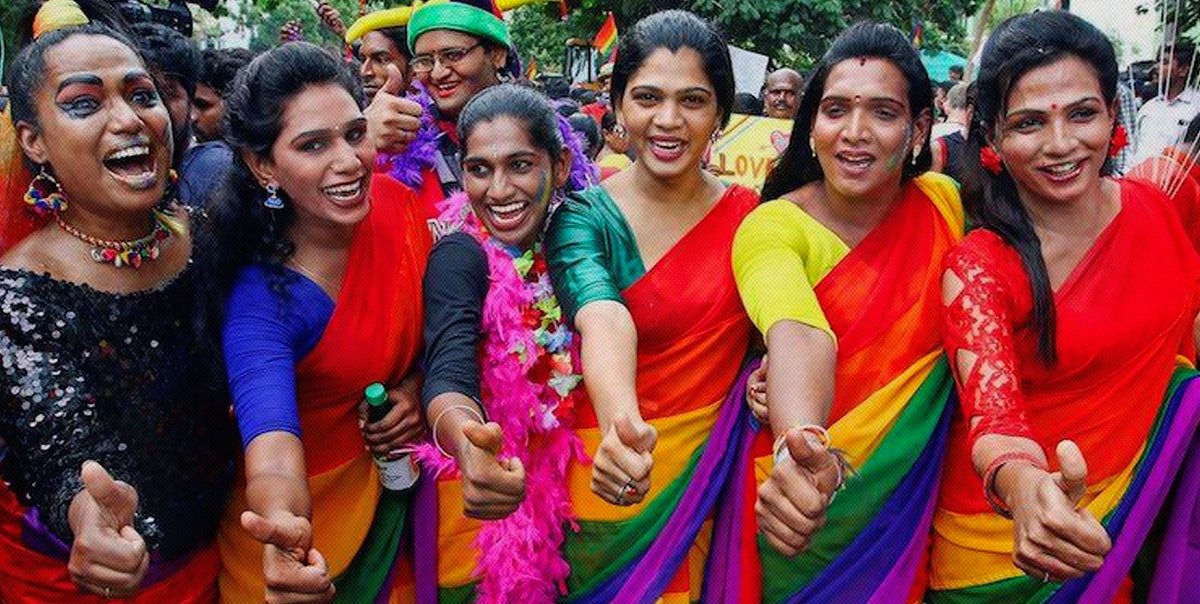Nearly a month after the ministry of social justice and empowerment sought suggestions to the draft rules of the Transgender Persons (Protection of Rights) Act 2020, a new draft was issued Monday that offered 30 days to submit further suggestions or objections.
The new draft has incorporated some of the changes submitted by members and activists of the transgender community in May, including the definition of discrimination based on the internationally recognized human rights proposition laid down by the Yogyakarta Principles, a provision on equal opportunities in employment, and formulation of state and Central schemes on social security, health and welfare for trans communities.
The draft offers a list of suggested welfare schemes that the government could consider in access to health, education, housing, welfare measures, and economic support. Some of the suggested measures included providing zero-interest and other micro-finance schemes, inclusion in employment guarantee schemes such as Mahatma Gandhi National Rural Employment Guarantee Scheme, universal access to food security schemes, free gender affirmative surgery, old age homes and shelters for at risk transgender youth.
“We need reservation, and without it any guarantee of protection is empty. But the draft rules don’t even mention a word of reservation,” said Tamil Nadu-based trans and Dalit rights activist, Grace Banu.
The new draft removed the previous document’s provision to penalize “false declaration to obtain certificate of identity” and further defined discrimination as:
Read also : “Will Do Something Like Telangana”: SC On Vikas Dubey Encounter
“Any distinction, exclusion or restriction on the basis of gender identity and expression, which has the purpose of impairing or nullifying the recognition, enjoyment or exercise, on an equal basis with others, of all human rights and fundamental freedoms in the political, economic, social, cultural, civil or any other field and includes all forms of discrimination, including denial of reasonable accommodation.”
However, the draft retained the provision to differentiate between certifications of the transgender identity and the male or female identity. While the former would require the submission of a form, the latter would require proof of medical intervention to change gender.
The 2014 Supreme Court verdict, National Legal Services Authority (Nalsa) vs Union of India, which granted legal recognition to the transgender identity stated that self-identification was central to gender identity, and that government cannot ask for any medical certification.
Read also : Vikas Dubey Encounter: HC Dismisses Petition For Setting Up Of Judicial Commission
“The new draft rules have made minor modifications in response to our considerable suggestions, but they retain the core of the Act which strips us of the right to self-determination and self recognition that Nalsa [judgment of Supreme Court] granted. The bill continues to rely on medical interventions to grant binary gender identities,” said Bittu Kondaiah, an associate professor at Ashoka University, New Delhi.
Members of the community from around the country held consultations over video calling applications to build consensus on modifications and additions to the first set of draft rules which were released earlier this year, and were required to be submitted by May 18.
The United Nations Development Programme as well as non-profit organisations like SAATHII, which works towards universal access to health care and social welfare held sessions with trans persons from around the country to formulate the feedback to the draft rules.
Read also : Supreme Court Directs Telcos To Maintain Data Seized In Criminal Cases
Source Link




